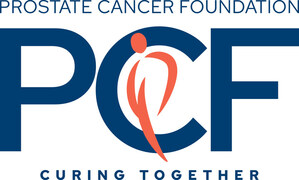Study defines a mechanism by which prostate cancer cells evade the immune system and a possible new precision immunotherapy regimen that counters it in an aggressive form of advanced disease.
LOS ANGELES, March 2, 2023 /PRNewswire/ -- Immunotherapies have successfully treated many types of cancer with the exception of advanced prostate cancer that has become resistant to treatment, known as metastatic castration-resistant prostate cancer (mCRPC). New findings from a Prostate Cancer Foundation (PCF)-funded investigator reveal the mechanism by which prostate cancer cells reprogram the immune system to promote rather than suppress cancer, as well as a promising new combination therapy that could prevent them from developing this ability.
The research led by 2016 Izzy Englander - PCF Challenge Award recipient Akash Patnaik, MD, PhD, MMSc, and his team at the University of Chicago was recently published in the peer-reviewed journal Clinical Cancer Research.
"These findings represent an exciting new opportunity to prevent prostate cancer cells from evading the immune system and a promising combination therapy for metastatic castration-resistant prostate cancer," said Howard R. Soule, PhD, Executive Vice President and Chief Science Officer of the Prostate Cancer Foundation. "PCF commends Dr. Patnaik and the research team on their achievement and proudly supports their work to bring us closer to our mission to eliminate death and suffering from prostate cancer."
Researchers found that by recruiting abnormal tumor-associated macrophages (TAM) that express PD-1 into the tumor microenvironment, the immune system promotes the growth of prostate cancer.
Androgen deprivation therapy (ADT) and chemotherapy are first-line treatment options for metastatic prostate cancer. However, patients often relapse and the disease advances. Nearly 35,000 men in the U.S. are projected to die of prostate cancer in 2023.
Approximately 50% to 75% of mCRPC patients have a mutation in the tumor suppressor gene PTEN which drives the PI3K tumor growth and survival pathway; in patients with PTEN-mutated tumors, the normal anti-tumor immune response is often suppressed. Alterations of the PTEN/PI3K pathway are known drivers of advanced prostate cancer. Clinical trials of single drugs to target this pathway and combinations of PI3K inhibitors and ADT have shown limited benefit in patients with mCRPC.
Patnaik and his team performed a series of experiments using PTEN-mutated mouse models. They found that following treatment with a combination of ADT and copanlisib, a PI3K inhibitor, PD-1-expressing immunosuppressive TAM blocked the anti-cancer immunity mediated by macrophages; the cancer cells forced the macrophages into tumor-promoting mode by binding to the protein PD-1 on their surface. The researchers hypothesized that adding a third drug to block PD-1 would unleash the ability of the macrophages to kill the cancer. The triple combination of PD-1 checkpoint immunotherapy plus ADT hormone therapy plus a PI3K inhibitor yielded a response rate 60% greater among treated mice than among untreated control mice. These data suggest that the three-drug approach is needed to overcome treatment resistance in PTEN-mutated prostate cancer.
As part of the PCF Challenge Award, a phase 1b clinical trial will be conducted to test the safety and efficacy of copanlisib in combination with an anti-PD-1 drug in patients with PTEN-deficient mCRPC. If successful, the research could result in a new precision immunotherapy regimen for these patients.
About the Prostate Cancer Foundation
The Prostate Cancer Foundation (PCF) is the world's leading philanthropic organization dedicated to funding life-saving prostate cancer research. Founded in 1993 by Mike Milken, PCF has been responsible for raising close to $1 billion in support of cutting-edge research by more than 2,200 research projects at 245 leading cancer centers in 28 countries around the world. Since PCF's inception, and through its efforts, patients around the world are living longer, suffering fewer complications, and enjoying better quality of life. PCF is committed to creating a global public square for prostate cancer, in service to our mission of ending death and suffering from the disease. Learn more at pcf.org.
MEDIA CONTACT:
Staci L. Vernick
Prostate Cancer Foundation
[email protected]
[email protected]
610-812-6092
SOURCE Prostate Cancer Foundation

WANT YOUR COMPANY'S NEWS FEATURED ON PRNEWSWIRE.COM?
Newsrooms &
Influencers
Digital Media
Outlets
Journalists
Opted In






Share this article